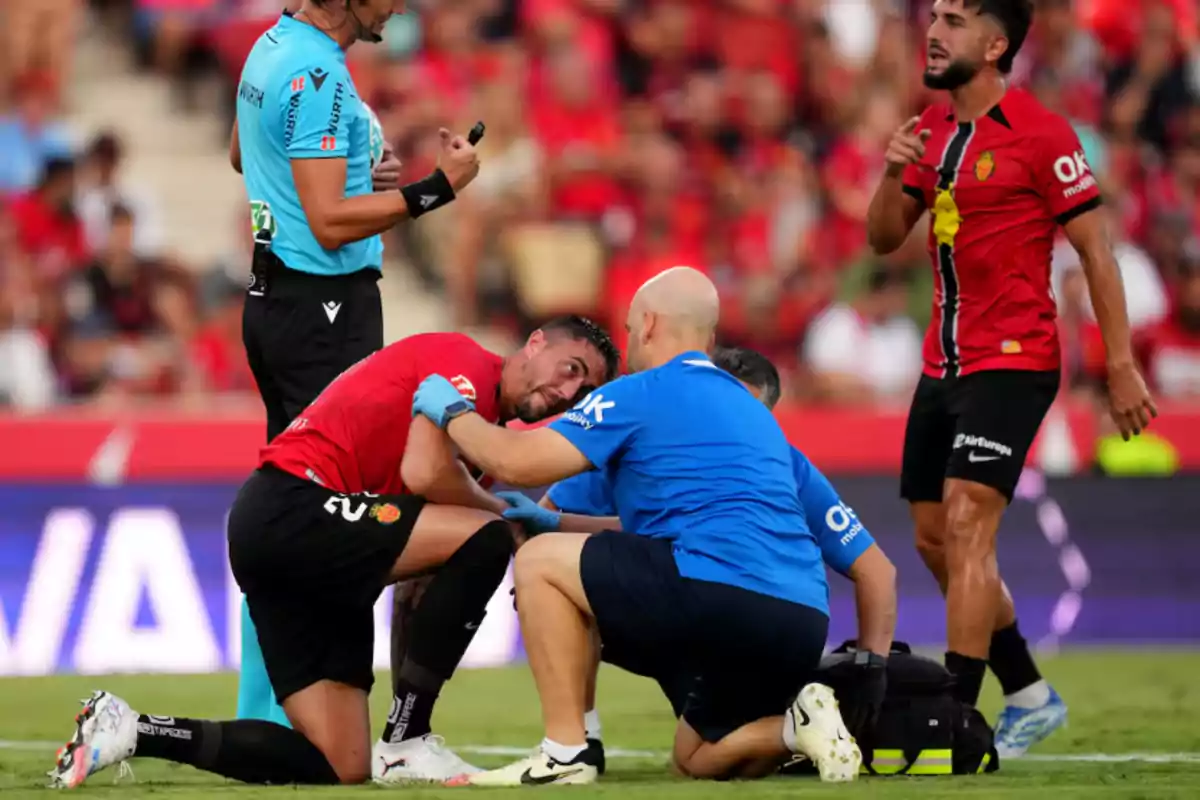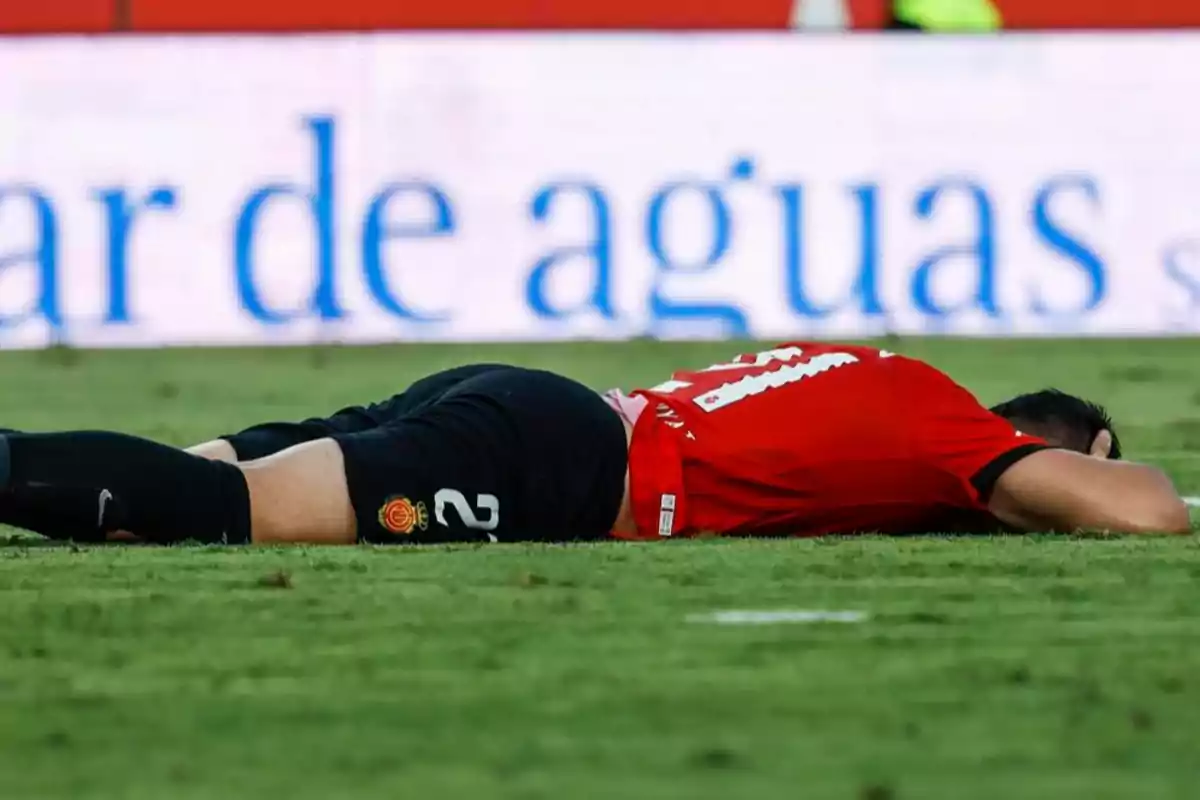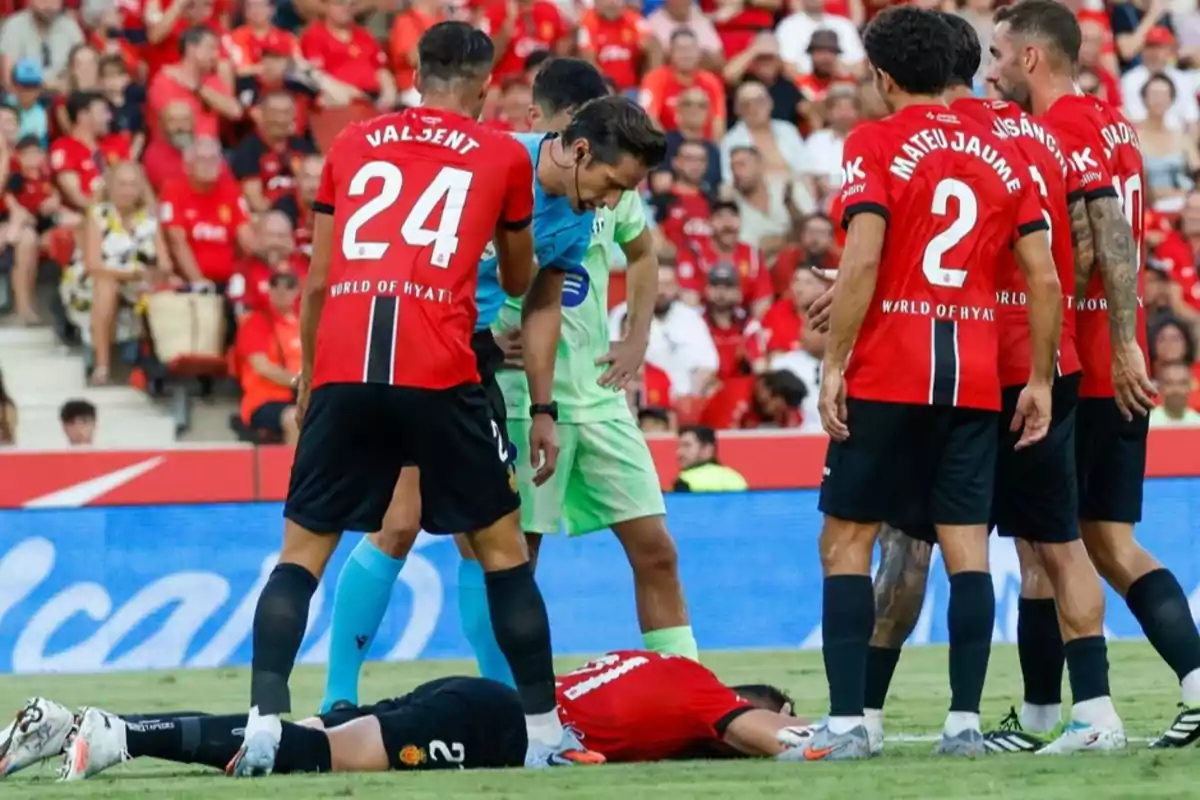LaLiga 2025 has barely started and there's already a team that's drawn attention for its way of competing. Mallorca has become the protagonist, but not because of its soccer, but because of its anti-soccer.
Its matches are being debated for a style that recalls Bordalás's Getafe: constant interruptions, time-wasting, and plays that border on or exceed the limits of the rules.
In the first matchday against Barça, there was an episode that reflects this trend. Raíllo, Mallorca's captain, was at the center of an action that outraged Barcelona fans.
The center-back threw himself to the ground after clearing a ball with his head and faked an injury with the sole aim of stopping the play. Barça, however, wasn't fooled and kept attacking. The referee didn't call anything and Ferran Torres scored.
The play that sparked the debate
Raíllo got up immediately, complaining that blows to the head should stop the game, a maneuver clearly aimed at slowing down and obstructing the opponent's rhythm.
His history of unsportsmanlike behavior confirms that these kinds of actions are part of Mallorca's strategy to gain an irregular advantage.
The problem for him is that, this time, there was no such impact. It was a desperate move to stop an attack that ended in a goal. He headed a ball, he didn't get hit by one.

If all teams acted the same way, matches would become an endless succession of stoppages. That's why the action of the vermilion captain has been interpreted as proof of how Mallorca tries to compete through interruptions.
A strategy repeated over time
This isn't the first time Raíllo has been involved in controversial episodes. His record is full of actions that border on unsportsmanlike conduct. The worrying thing isn't the isolated incident, but the overall strategy.
Mallorca has adopted "anti-soccer" as a rule, as rivals and fans claim.
The data back it up. According to statistics, Mallorca is the team that interrupts play the most in LaLiga.
It leads the ranking for tactical fouls, bookings for time-wasting, and complaints to the referee. It's a way of competing that has little to do with the spectacle expected of professional soccer.
The Bordalás mirror
The style inevitably recalls Bordalás's Getafe, which once gained international fame for its constant interruptions and defensive toughness.
Mallorca has taken on that role in the present. It has become a feared team not so much for its footballing quality as for its ability to disrupt the opponent's play.
Mallorca leads the ranking for tricks. The most serious thing is that it doesn't seem to have any intention of changing. Its commitment to anti-soccer threatens to define the season.
This was proven in the second matchday. Raíllo's action wasn't an isolated incident; it was part of a game strategy.
The second controversial situation of the season occurred in the match against Celta de Vigo on the second matchday. Referee José Luis Guzmán Mansilla reported that Mallorca's physiotherapist threw a ball onto the field in the 90th minute with the aim of stopping a Celta attack.
The referee, Guzmán Mansilla, sent off Magí Vicens Méndez for "throwing a ball from the bench onto the field of play, interrupting a throw-in by the opposing team." This could be read in the match report.

This incident confirms that Mallorca doesn't limit itself to actions by players on the field. Its strategy of winning matches "outside the rules" also involves its technical staff.
Anti-soccer and consequences
If other teams replicated these tactics, soccer would turn into a spectacle full of interruptions and conflicts, moving away from sporting principles. The combination of the episodes involving Raíllo and the physiotherapist against Celta shows a pattern that many consider "anti-soccer."
The debate over stricter sanctions is intensifying, with the need to preserve the integrity of matches. Also to ensure that success is achieved within the rules, not through tricks.

